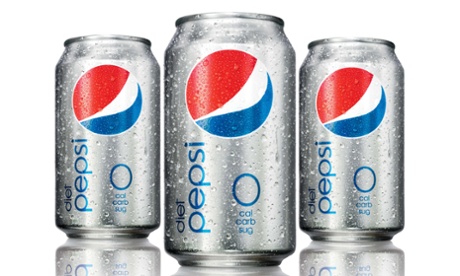
Is aspartame bad for you? The artificial sweetener, used in a huge variety of diet products from soft drinks to yoghurts, chewing gum to frozen desserts, is being dropped by Diet Pepsi in the US. “Aspartame is the number one reason consumers are dropping diet soda,” says Seth Kaufman, vice-president of Pepsi, whose sales of diet soda dropped 5% in the US last year. But why?
Aspartame is made up of two amino acids, phenylalanine and aspartic acid, and methanol, and is 200 times sweeter than sugar. Because tiny amounts are needed for a sweet flavour, it adds only a trace of calorific content to a product, so is ideal for the diet industry. But its use has been controversial since the US Food and Drug Administration approved it in 1974, with accusations of conflicts of interest and inadequate research. There have been large-scale randomised trials and cohort studies investigating it, including those undertaken by the US National Cancer Institute and the European Food Safety Authority – all of which concluded aspartame is safe in moderate doses.
Yet it has been linked to multiple sclerosis, lupus, brain tumours, blindness, seizures, mental health problems and birth defects, probably because its components can, in high enough doses, be harmful. But aspartame doesn’t contain high quantities of aspartic acid (also found in avocados and asparagus), or methanol (found in beer, wine and tomatoes). Phenylalanine is harmful, but only to the unlucky few with phenylketonuria, a rare genetic disorder. For everyone else, aspartame is safe. The daily recommended dose is 40mg per kg of body weight. For perspective, you would have to drink 12 cans of Diet Pepsi to hit that.
For Pepsi, the decision is a canny marketing move to allay the fears of US consumers, rather than one based on science; aspartame will still be used in Diet Pepsi for the rest of the world. What, then, of sucralose, which is taking its place? The recommended daily intake is lower than that of aspartame, at 15mg per kg body weight. It hasn’t had the same bad press and although it has been linked to migraines, a 2000 review by the European Scientific Committee on Food concluded it is safe. But then, so is aspartame.

